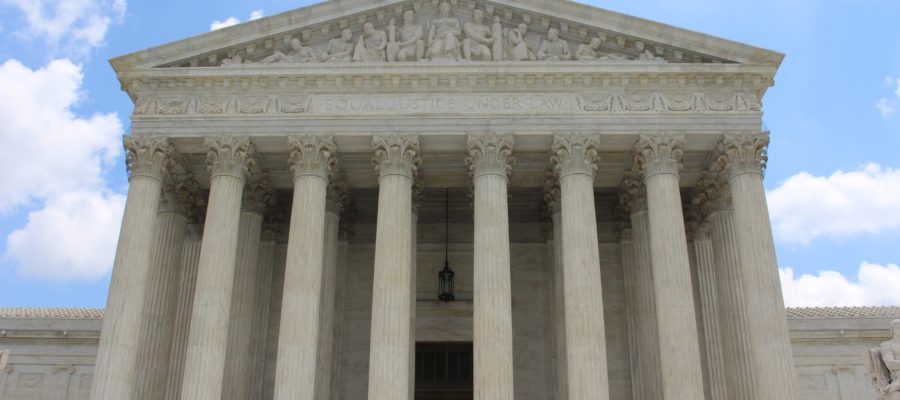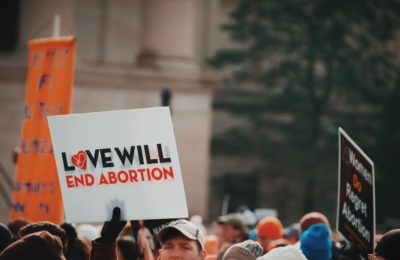Abortion and the Supreme Court’s Misguided Notions of ‘Autonomy’
March 1, 2016 | Published first in National Review Online
The Supreme Court will hear oral argument on Whole Woman’s Health v. Hellerstedt on March 2. At issue is whether Texas regulations — requiring abortion providers to have admitting privileges in area hospitals and abortion clinics to meet higher standards — pose an “undue burden” to women seeking abortions or whether they are reasonably related to the government’s interest in protecting health and safety.
As usual, all eyes rest on Justice Kennedy. And, since Obergefell v. Hodges especially, Court watchers of all stripes await the next development in his “jurisprudence of dignity.” For constitutional conservatives, apprehension has only only grown with Justice Scalia’s sudden passing: The jurist known for adopting bright-line rules can no longer exert his influence on those, like Kennedy, more apt to balance “constitutional values.” Without recent precedent in their favor, the abortion clinics are eager to see some balancing.
And so the clinics and amici (various constitutional-law professors) on their behalf have sought to capture the imagination of the jurist who has constitutionalized a term that carries more conflicted philosophical weight than it can bear: “dignity.” In an effort to see Kennedy reshape abortion jurisprudence in their favor, the clinics and amici point to those high-court opinions that have included abortion among those decisions central to women’s “personal dignity.” But Kennedy cannot forget that in his most recent abortion opinion he upheld congressional action proscribing a particularly gruesome form of late-term abortion, to “express respect for the dignity of human life.”
So which is it? What does “dignity” require?
One would assume that “human dignity” would cut against abortion rights, and in the European context, it tends to: Abortion is much more highly restricted in Europe than in the United States (which joins China, North Korea, and Canada as the least restrictive countries). But in Supreme Court jurisprudence the term has also taken a distinctively American flavor, following Enlightenment philosophers Kant and Mill rather than the Judeo-Christian intellectual tradition: In much constitutional reasoning, dignity is simply synonymous with autonomy, that libertarian guarantee to be left alone to pursue one’s own self-definition, the right to be free from others’ claims upon us.
In the abortion context, dignity as autonomy is particularly troublesome. In point of scientific fact, the pregnant woman is simply not autonomous, whatever legal fictions (e.g., “potential life”) the Supreme Court may have conjured up to justify its claims. Indeed, the vulnerability and dependency of another human being weigh on her; this may well be inconvenient and even personally quite burdensome, but were we honest, we would call her to an affirmative duty of care to protect the intrinsic dignity of her developing child. Dignity as autonomy would give way, as it certainly must in this case, to dignity as solidarity, our personal and communal responsibility to care for the vulnerable persons entrusted to us. This is how dignity is best understood in international contexts, and this is how parent–child relationships are best understood in all other contexts of U.S. family law, save abortion. Vulnerability begets responsibility.
By granting broad constitutional protections to abortion as a means to feign personal autonomy, U.S. law encourages pregnant mothers to mimic the irresponsible acts of child-abandoning fathers, an experience of deep deprivation known by far too many children in America today. Dignity as solidarity demands that fathers embrace their duties to their children, and that they and the community at large stand with women and children, recognizing that both enjoy intrinsic dignity and that both deserve the community’s generous support.
Indeed, dignity for pregnant women and mothers requires just this, because in protecting and providing for dependent and vulnerable human beings, women run the risk of increased dependency and vulnerability themselves. And so the clinics and amici bring attention, as they well should, to women in poverty, with inflexible jobs, inadequate health and child care, and, I would again emphasize, an epidemic lack of paternal support.
We are a nation that loves “to be left alone” but often cowers at our duties to the vulnerable. Our response over the last several decades has been to “rely” on women to abort their unborn children so women can enjoy, the Supreme Court tells them, the “ability . . . to participate equally in the economic and social life of the Nation.” Has the culture’s reliance on abortion, the phrase employed favorably by the plurality in Planned Parenthood v. Casey, really assured equality for women? Or has reliance on abortion provided an easy deliverance for political and economic actors? Note that those same European countries that more heavily restrict abortion on the grounds of dignity as solidarity also call the community at large to greater responsibility for ensuring support for families with children: a truth inconvenient for many on both the political left and the political right in America, but a truth nonetheless.
Harvard Law professor Laurence Tribe, smitten with Justice Kennedy over the Obergefell decision, recently suggested that the Court’s jurisprudence of dignity is best understood as the weaving together of fundamental-rights due-process jurisprudence with an anti-subordination equal-protection principle — voila, “equal dignity” — ensuring, Tribe hopes, the ultimate “solicitude for vulnerable groups.” Putting aside the obvious application of this putative principle of constitutional law for the most vulnerable of vulnerable groups, unborn human beings, we can see that its alternative application in support of women as a subordinate group would vitiate against abortion as well.
If women with children are indeed socially subordinate, which arguably they are, the response of a civilized society ought not be to cast aside the source of the vulnerability when, as here, that source is nothing less than a developing child. It ought instead be to deliberate intelligently about how, on the one hand, to increase cultural esteem and support for care work undertaken disproportionately by women while, on the other hand, not pigeonholing women into that work, since they are capable of that and more. A delicate deliberation, to be sure, but not one facilitated by the judiciary’s dominion over abortion in the past four decades.
It is high time that the Court abandon the fiction that abortion serves women’s dignity and equality. It is now time that community and political leaders look anew at family policy, at ways we might achieve women’s authentic equality — and increased health and safety — in a world where their dignity and that of their children are not at odds with each other but are inextricable, inviolable, and most highly cherished.
— Erika Bachiochi is a visiting fellow at the Ethics and Public Policy Center.



